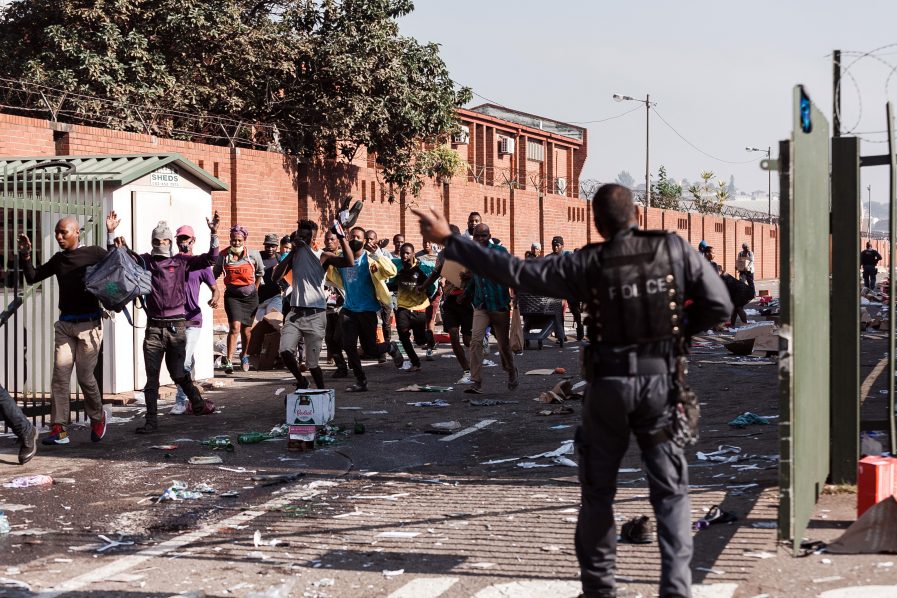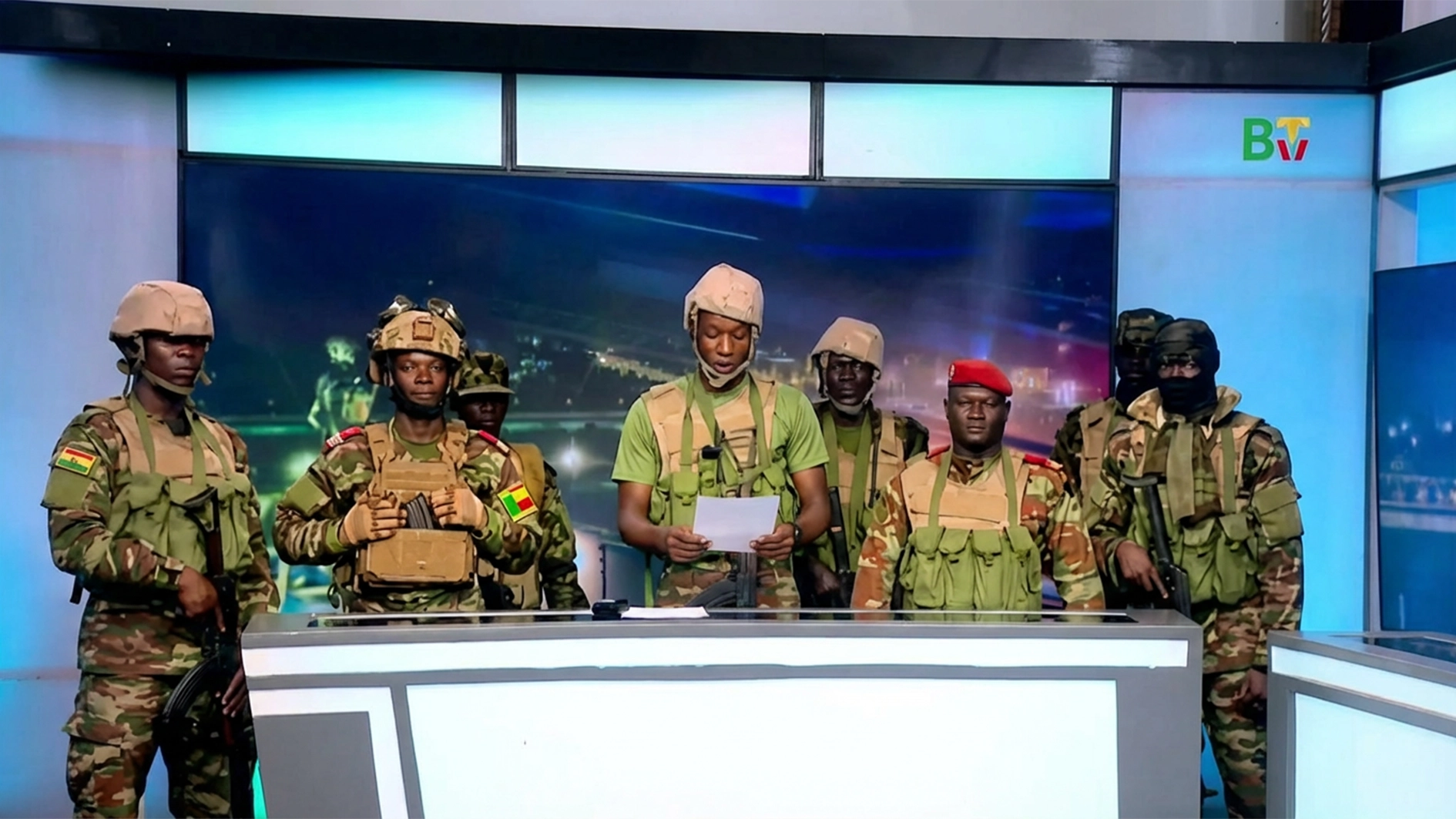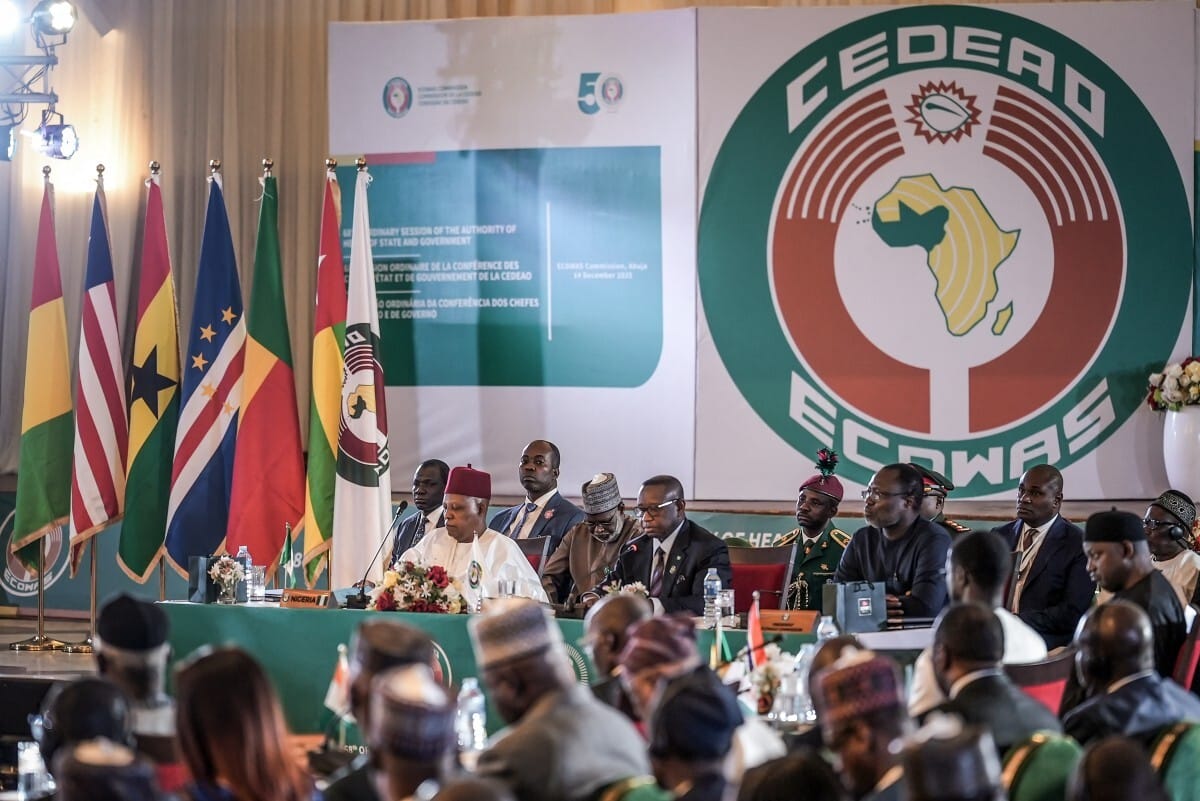[dailymotion code=”k3HZaplLcydKiHx2iGg” autoplay=”yes”]
President Cyril Ramaphosa on Monday said the deadly unrest gripping the country is unprecedented in post-apartheid South Africa as he deployed troops to help police crush the violence and looting sparked by the jailing of ex-president Jacob Zuma.
Soldiers were sent onto the streets of the country’s two most densely populated provinces of Gauteng, which houses the country’s economic hub Johannesburg and KwaZulu-Natal, Zuma’s home province.
“Over the past few days and nights, there have been acts of public violence of a kind rarely seen in the history of our democracy,” said Ramaphosa in a televised address to the nations, adding he was speaking with “a heavy heart”.
Overwhelmed police are facing mobs who have ransacked stores, carting away anything from crates of alcohol to beds, refrigerators and bathtubs.
Ten people have died, some with gunshot wounds sustained before the army was deployed, and 489 people have been arrested.
Ramaphosa said he had “authorised the deployment of defence force personnel in support of the operations” of the police.
Earlier the army said they will assist police “to quell the unrest that has gripped both provinces in the last few days”.

It was the second successive day Ramaphosa, addressed the nation on the violence.
The violence raged as the Constitutional Court heard an application to review its landmark decision to jail Zuma for contempt of court. Judgement was reserved after a marathon 10-hour sitting.
The country’s top court on June 29 slapped Zuma with a 15-month term for snubbing a probe into the corruption that stained his nine years in power.
Zuma began the sentence last Thursday but is seeking to have the ruling set aside.
“This court made fundamentally rescindable errors,” Zuma’s lawyer Dali Mpofu argued in an online hearing.
But one of the judges, Steven Majiedt, bluntly said Zuma had been convicted “because he disobeyed the order of this court”.
Mpofu responded that Zuma was being “punished for more than the disobedience” of a court order.
Despite his reputation for graft and scandal, the 79-year-old former anti-apartheid fighter remains popular among many poor South Africans.
– Looting –
The epicentre of the unrest is Zuma’s home region, the southeastern province of KwaZulu-Natal. In its capital, Pietermaritzburg smoke billowed from the roof of a large shopping mall. Banks, shops and fuel stations in the city were shut.
Retail shops in Durban and Johannesburg were ransacked Monday while police watched.
In Johannesburg, in Gauteng province, an AFP photographer saw a corpse at one site.
A police helicopter hovered over the Johannesburg suburb of Soweto, where looters casually made off with giant TV sets, microwave ovens, clothes and linen, for hours.
Many businesses were shuttered.
A mall in Johannesburg’s upmarket Rosebank suburb closed early following “a tipoff that the looters are on their way,” a security guard told AFP.
In the meantime, chemists helping the government’s Covid-19 vaccination campaign warned that the unrest gripping the country would slow inoculations in the continent’s worst-hit country as “vaccination sites have been destroyed and looted”.
“Our vaccination programme has been severely disrupted just as it is gaining momentum,” said Ramaphosa.
The unrest began on Friday, taking the form of protests triggered by Zuma’s detention.
But looting swiftly took over, reflecting the levels of hardship in a country hit by catastrophic unemployment and a toughening of anti-Covid restrictions.
– Zuma faces another case –
Once dubbed the “Teflon president,” Zuma started serving the jail term after handing himself into authorities as a deadline for surrender loomed.
On Friday he lost a petition at the Pietermaritzburg High Court to have his case thrown out.
An anti-graft panel is probing the massive siphoning off of state assets that occurred during Zuma’s 2009-2018 presidency.
He testified just once, in July 2019, but then swiftly withdrew his cooperation.
Under the terms of his sentence, Zuma could be back home long before Christmas as he would be eligible for parole in less than four months.
He is due back in court on July 19 for a separate case where he faces 16 charges of fraud, graft and racketeering in an arms procurement scandal dating to 1999 when he was vice president.






